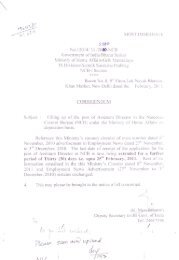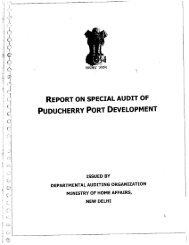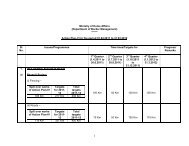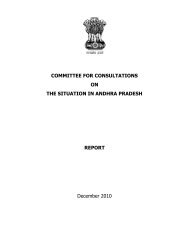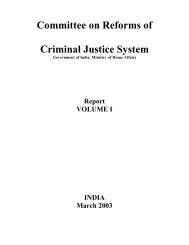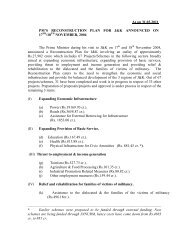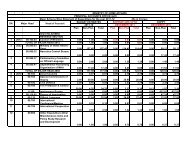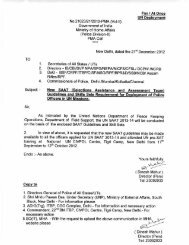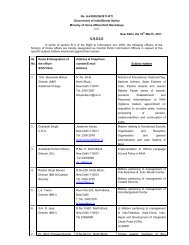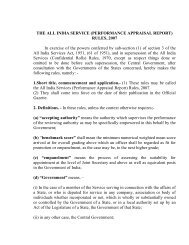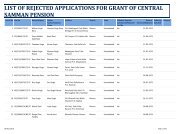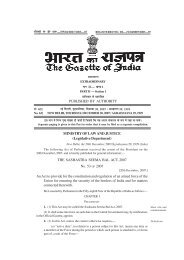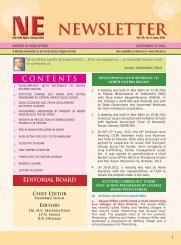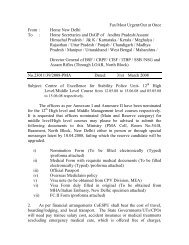Book of Integration Council New - Ministry of Home Affairs
Book of Integration Council New - Ministry of Home Affairs
Book of Integration Council New - Ministry of Home Affairs
Create successful ePaper yourself
Turn your PDF publications into a flip-book with our unique Google optimized e-Paper software.
SHRI JYOTI BASU<br />
DEAR SHRI MANMOHAN SINGHJI,<br />
Thank you for your letter <strong>of</strong> 7 th October 2008 asking me to attend the next<br />
meeting <strong>of</strong> the National <strong>Integration</strong> <strong>Council</strong> enclosing the agenda. I regret that it<br />
would not be possible for me, for reasons <strong>of</strong> disadvantageous physical<br />
conditions that I am in, to be personally present in the meeting. I shall take this<br />
opportunity to make a few suggestion on the agenda for discussion.<br />
We have long been sending out concrete suggestions to the successive<br />
government <strong>of</strong> India on the sensitive and important issue <strong>of</strong> national integration.<br />
We have failed to see yet the impact <strong>of</strong> propositions in matters <strong>of</strong> policy <strong>of</strong> the<br />
Government <strong>of</strong> India. There must be a change made from the present policy<br />
being pursued in order to make the issue <strong>of</strong> national integration a vibrant reality<br />
and to keep the nation from falling apart. For this political will is necessary.<br />
The crux <strong>of</strong> the Constitution is the set <strong>of</strong> principles known as the directive<br />
principles <strong>of</strong> state policy. These principles include adequate means <strong>of</strong> livelihood<br />
for every citizen and the right to work; an economic system, which does not<br />
result in the concentration <strong>of</strong> wealth; right to education and provision for free,<br />
and compulsory education for children; living wage for workers and equal work<br />
for equal pay for men and women.<br />
None <strong>of</strong> these principles could be implemented thanks to the bias to the<br />
rich <strong>of</strong> the socio-economic system that prevails in the counrty. The gap between<br />
the virtuous intentions and the actuality <strong>of</strong> practice stares us in the face 58 years<br />
since the adoption <strong>of</strong> the Constitution.<br />
The period since the independence has been marked by a continuing crisis<br />
because <strong>of</strong> the above-noted factors in the nation's economy. This has served to<br />
stress and accelerate not only the problem but has harmed the national integration<br />
process itself. India has been principally an agrarian country with a superstructure<br />
<strong>of</strong> industries. After we gained freedom from British colonial rule, despite the<br />
land reforms act <strong>of</strong> the mid-1950s and scores <strong>of</strong> pious declarations and promises,<br />
the successive central government led by the Congress and other parties refused<br />
to go in for land reforms. Concentration <strong>of</strong> land and rural inequalities, and a<br />
severe persecution <strong>of</strong> the peasant masses continue unabated. A central legislation<br />
on minimum wages in the rural stretches is yet to be implanted properly.<br />
189



